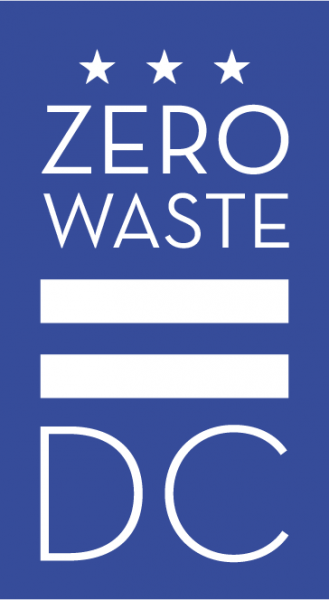Home Composting Program
District of Columbia residents can earn a maximum rebate of $75 on a home composting system through the Department of Public Works’ Home Composting Program. The exact amount of the rebate is determined by a sliding scale. The rebate amount is subject to change on October 1 of each year. (Status: Rebate Program is currently paused)
What is Composting?
Composting is a process whereby microbes and fungi break down organic matter into a nutrient-rich soil amendment. It is both a science and art where you need the right mixture of nitrogen (food waste, fresh grass clippings), carbon (leaves, straw), oxygen, and water.
Vermicomposting is compsoting with earthworms, where worms consume fruit and vegetable scraps and create high-quality worm castings that can be added to your house plants or garden.
What are the benefits?
Composting reduces methane emissions and lowers your carbon footprint by diverting organic material from landfills. Using compost in your garden enriches the soil and retains moisture.
What type of composting is best for me?
-
Traditional backyard composting: Typically done in a bin outside, this method relies on natural heat-loving organisms to break down organic waste. It requires turning or stirring the compost up to a couple of times a month to help let in fresh air.
-
Vermicomposting: The nature of earthworms is to naturally breakdown organic wastes, like food and yard wastes. Earthworms are sensitive to light, moisture, and temperature, so vermicomposting can be done indoors in a location with stable temperatures and low light or outdoors embedded into a garden bed by about 12 inches.
Home Composting Program workshops and rebates are currently paused. For questions about the Home Composting Program, or to be notified when workshops are scheduled, please email [email protected].
Workshops
Learn to compost at home by attending the Department of Public Works’ Home Composting Program workshops. Workshops will teach you the science of composting, what can be composted at home, how to compost at home, different types of home composting systems, best management practices, and more! District residents who attend a workshop are eligible for a rebate from the District to purchase their own home composting equipment.
Rebate
To qualify for a rebate, you must attend one of the workshops offered through the program. Rebates will be available again following the relaunch of the program.
Other resources
Home Composting Guide - Spanish
Any person engaging in home composting also has the responsibility to ensure their bin is properly maintained. If you have questions or need troubleshooting tips, please contact DPW’s Office of Waste Diversion by emailing [email protected].
Carbon to Nitrogen Ratios
The ideal carbon-to-nitrogen ratio (C:N) for composting is approximately 25-30:1 by weight. When piled to a point where heat can be trapped, this carbon-to-nitrogen ratio allows for thermophilic – or "heat-loving” microbes to thrive, which allow your compost bin to warm up and breakdown materials and foster the success of "soil fauna", like earthworms, to assist with breaking down the organic materials to become stabilized in the form of compost, which is a nutrient-rich soil amendment for gardens, landscaped areas, and local farms.
Ratios for Common Materials found in DC (all are estimates: source)
- "Greens"
- Food Scraps= 15:1
- Grass clippings: 19:1
- Fresh (green) tree leaves= 37:1
- Coffee grounds= 20:1
- "Browns"
- Shreded cardboard= 563:1
- Coco coir= 90:1
- Newspaper= 170:1
- Saedust= 625:1


